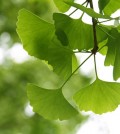- Make It Yourself Lavender Heart-Shaped Bath Bombs!
- 20 Things You Never Knew About “Down There”
- 12 Best Foods For Those Suffering From Arthritis Pain
- 12 Personal Hygiene Mistakes Almost Everyone Makes (Mom Never Told You About #4!)
- 15 Medicinal Plants And Herbs From The Cherokee People
- 12 Mind-Blowing Benefits Of Drinking Coconut Water During Pregnancy
- 12 Outstanding Winter Foods That Won’t Fatten You Up Like A Christmas Turkey
Incredible List of 75 Super Healing Herbs and Their Uses
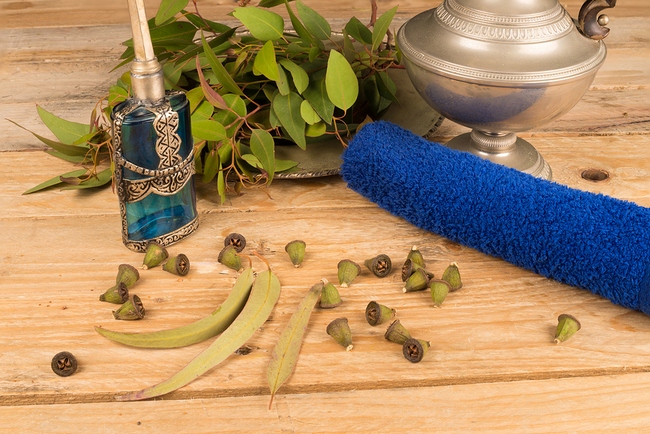
Photo credit: bigstock.com
Herbs might just be the most wonderful thing Mother Nature put on this planet to heal us. Besides making our foods taste pretty darn good, they hold medicinal powers that encourage healing and relief from annoying or painful symptoms. There are many, many more herbs than are on this list, but these are some of the most popular, and/or most healing. If you are lucky enough to have an herb garden, you might want to plant some of the herbs in this list, ones that will grow in your area, of course. In case of illness or those little emergencies, your herb garden will always be there for you to help ease you through those life’s little ups and downs.
Keep reading for the most healing, medicinal herbs around and think spring time planting!
1. Brahmi
This herb from India is used to enhance and rejuvenate the memory as well as increase circulation. This herb is also used in Ayurvedic medicine to improve immunity and treat hair loss as well as psoriasis.
2. Ashwagandha
Sometimes called Winter Cherry, this herb treats infertility problems, and is a known aphrodisiac.
3. Ginger
This super popular herb is great at stopping nausea, digestive problems, morning sickness, and much, much more. It’s what many use as a sort of “go to” all around remedy for almost every ailment known to man due to its anti-spasmodic, anti-inflammatory, anti-pyretic, and analgesic compounds. Makes a great tea, also.
4. Turmeric
Although this has been around for hundreds of years, turmeric has recently been “discovered” to have great healing powers. It’s been used in traditional Ayurvedic medicine for skin ailments, blood purification, lung disease and heart and liver disease. Turmeric is super anti-bacterial, so it helps with wound healing.
5. Turkey Rhubarb
Not well known, but terrific for digestive problems as it maintains the delicate balance of the digestive system. It’s very mild and is used to treat diarrhea, constipation, hemorrhoids, and menstrual cramps.
6. Spearmint
Calms the nervous system and helps with respiratory problems, especially those involving the bronchial tubes.
7. Pine
No, not that cleaning solution, but real pine, as in from trees. Pine has cortisone-like compounds that treat severe infections, are anti-diabetic, and hypertensive.
8. Mullein
This is great for those with breathing problems, stops common hay fever allergies, and helps relieve the symptoms of bronchitis and asthma. Makes a great laxative as well.
9. Eucalyptus
Another one that is great for the lungs and any type of respiratory problem. Even helps clear up congestion in the sinuses and lungs due to cold, flu or bronchitis. Eucalyptus is a great anti-viral, anti-bacterial, and anti-microbial herb everyone should have on hand.
Continue to Page 2
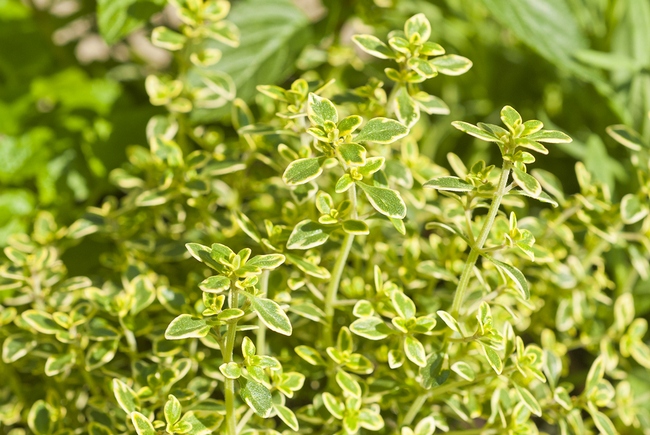
Photo credit: bigstock.com
10. Witch Hazel
The perfect skin astringent for acne or oily skin. It also works great on bruises, sprains, or other types of skin wounds. Witch hazel rejuvenates the skin, so rub some over your face after washing for an inexpensive but natural toner.
11. Vervain
Another little known herb that used to be quite popular for relieving depression and anxiety.
12. Thyme
This common spice used in cooking is also a powerful antibiotic that can stop respiratory tract infections and asthma symptoms.
13. Tarragon
This tasty spice you most likely have in your kitchen but you probably didn’t know that it can help treat both insomnia and depression.
14. Slippery Elm
This is an age old treatment that has been used by Native Americans for hundreds of years to help stop sore throats, chest infections, bronchitis, even tuberculosis.
15. Rosemary
This sweet smelling herb is great for stimulating the brain, improving memory, and stopping migraine headaches. It’s also used to help improve blood circulation and stop hair loss.
16. Raspberry Leaf
The leaf from raspberry plants is high in calcium, and is known to help women control monthly cycles with heavy bleeding. It can prevent nausea and relax the cervix prior to childbirth. It’s also excellent for post-natal depression.
17. Parsley
When consumed raw, parsley is high in vitamin C and can help to improve digestion. It is also a powerful diuretic, so it’s good for detoxing the body, as well as being a pretty plate decoration!
18. Nutmeg
Adding a touch of nutmeg to your meals can help with indigestion and heartburn.
19. Peppermint
Although there are many different types of mint, garden mint tends to be milder than peppermint in its effects. Mint relieves gas and heartburn, eases stomach pain, nausea, and motion sickness. Encourages sweating, so it is good for detoxing as well as lowering a fever.
Continue to Page 3
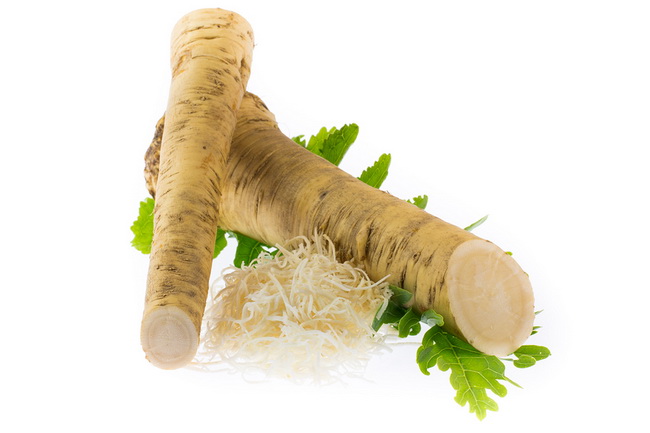
Photo credit: bigstock.com
20. Calendula
Sometimes called Marigold, the essential oil can help to relieve cold sores, stop fungal infections, ringworm, and thrush. Calendula is also good for the liver, including those suffering from hepatitis.
21. Licorice
Balances the body as well as the nervous system. Not for long term use, as it can cause liver damage.
22. Lavender
Sweet smelling and super calming, lavender oil is great for skin problems, especially relieving chilblains. Adding a touch of lavender flowers to other herbal teas is good for stopping migraine headaches.
23. Horseradish
Its powerful taste and smell are great for reliving muscle aches, opening up the sinuses and easing chest congestion.
24. Goldenseal
This herb has been used by Native Americans for hundreds of years to heal respiratory problems as well as stop ulcers, liver problems, and urinary tract infections.
25. Gingko Biloba
This is a popular herb that improves circulation to the brain, improving memory and concentration levels. It is also used to prevent strokes, give energy, and is a powerful antidepressant. This herb is consumed by people all over the world, including many who suffer from MS.
26. Feverfew
As the name implies, this herb will help break a fever, but it is also quite effective at stopping migraines, tension headaches, arthritis pain, and hangovers.
27. Fennel
Chewing fennel after meals will improve digestion, stop bad breath, and whiten the teeth.
28. Dill
Besides making dill pickles, this herb is an effective remedy for insomnia.
29. Dandelion
That weed out in your garden can be eaten and it has plenty of health benefits for doing so. Dandelion is a powerful detoxifier, helping the kidneys, liver, and gallbladder remove waste. It also purifies the blood and removes warts like magic. Rub the white juice from the leaf of a dandelion on the wart twice a day and it should fall off in a few weeks.
Continue to Page 4
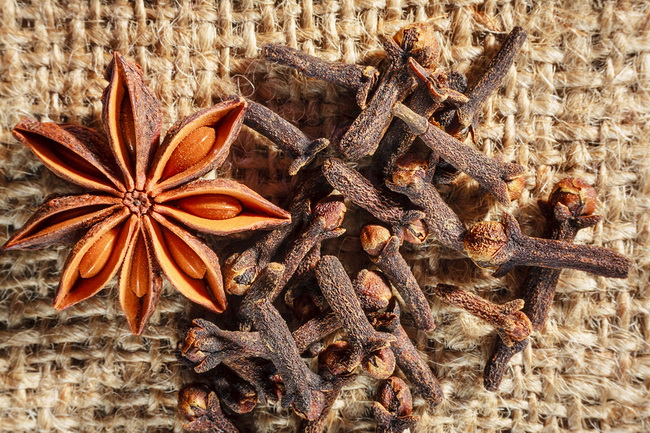
Photo credit: bigstock.com
30. Cramp Bark
Well, this one is a no brainer; the bark from this plant eases all types of abdominal cramps, regardless of the cause. It is also good for stopping bedwetting or other types of incontinence.
31. Clove
Clove oil is a great way to relive tooth pain and headaches. It’s also been said to be good to help those with alcoholism stop their addiction.
32. Cilantro
Besides a tasty salsa additive, cilantro is highly anti-bacterial. It relieves stomach pain due to bacterial infection and was often used to preserve meat before refrigeration.
33. Chickweed
To gardeners this is thought of as an invasive weed, but to those who know herbs, chickweed is great way to treat eczema and other types of skin irritation. Helps to relive the pain of rheumatism and speeds the healing of minor burns and bug stings.
34. Celery Seed
This helps to stop urinary tract infections, and relieves gout with regular use. Celery seed is also known to ease arthritis pain and calm respiratory problems such as bronchitis and asthma.
35. Cayenne Pepper
Adding more of this spicy pepper to your meals can help regulate blood sugar levels as well as relieves arthritis pain. Many arthritis creams and lotions use cayenne pepper for pain relief.
36. Buchu Leaf
This little known leaf is highly antiseptic and works well in the urinary tract system to stop infections, prostate problems, and thrush.
37. Black Cohosh
An herb often used by Native Americans, it is super helpful at regulating estrogen production in women and alleviating menstrual problems, PMS, and menopause symptoms.
38. Anise
This popular garden plant smells just like licorice and crushing the seeds and mixing them with some honey is an old home remedy for stopping nagging coughs from cold or flu viruses.
39. Agnus Castus
This is another herb that can really help women who are experiencing severe menopause symptoms. This works best when combined with black cohosh and/or sage.
Continue to Page 5

Photo credit: bigstock.com
40. Indian Spikenard
Sometimes referred to as Jatamansi, this super aromatic herb purifies the blood and improves the complexion.
41. Holy Basil
Used in Ayurvedic medicine as a treatment for many health issues including stress relief, kidney stones, colds, fevers, bronchitis, asthma, and sore throats, to name a few.
42. Garlic
One of the most popular herbs ever and highly valued for its anti-viral, anti-bacterial, and anti-fungal properties, not to mention its great taste when added to food dishes.
43. Comfrey
A popular, old fashioned herb that helps the body replace cells. Use comfrey for healing broken bones, clearing up the bronchial tubes, relieving the pain of arthritis, and easing the pain of severe burns.
44. Rosewood
Most people only think of rosewood in terms of furniture but rosewood is highly valued for its anti-bacterial, anti-viral, and anti-infectious compounds.
45. Myrrh
Yes, the same substance you might have heard about from the bible, myrrh has been around for centuries and it is used for more than just its sweet smell; it eases skin conditions, and supports the immune system. Myrrh is also anti-viral and anti-infectious and can reduce muscle spasms.
46. German Chamomile
Like most types of chamomile, this herb calms stress and anxiety and relives insomnia. It is very effective at improving digestion and can stop colitis. It supports pancreas health and increases liver function.
47. Cypress
Cypress oil has powerful antiseptic, deodorizing, hepatic, hepatic, diuretic, and vasoconstrictor properties.
48. Yarrow
This herb is very effective when it comes to blood clotting, so it’s perfect for helping wounds to heal and stopping persistent or recurring nose bleeds. It also can relieve the symptoms from cold or flu viruses.
49. Willow Bark
Used for centuries, willow bark’s active ingredient was finally extracted in the early 19th century and found to be quite effective at relieving minor pain. You know the synthetic version as aspirin. Willow bark can relieve pain and is also a natural anti-inflammatory, but it will not thin the blood.
Continue to Page 6
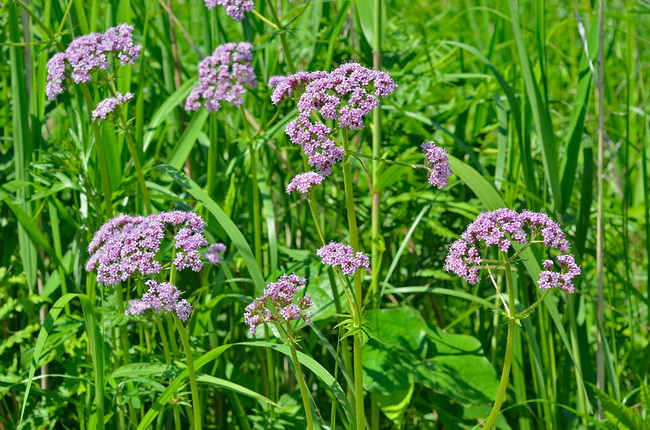
Photo credit: bigstock.com
50. Valerian
Commonly used today as a sleep aid or calming agent. It is often prescribed for those who experience anxiety or panic attacks. It does give some people headaches, however.
51. Tea Tree Oil
This very popular oil from a tree native to Australia, it has strong antiseptic powers along with antifungal compounds. Very effective against all skin problems including acne, dandruff, and eczema.
52. St. John’s Wort
Used for hundreds of years to treat depression, it also is highly anti-viral and can treat cold, flu, HIV, and hepatitis.
53. Sage
Helps those suffering from hot flashes due to menopause, and works well against throat, mouth, and gum diseases. A versatile herb that helps those with irritable bowel syndrome, insect bites, and even guards against failing memory. Sage is super easy to grow and thrives in even the coldest climates.
54. Red Clover
Often prescribed for women who are having difficulty conceiving, but also relieves the pain and itching of psoriasis and eczema. Some studies show that it is also an effective treatment against some cancers.
55. Passion Flower
This is a natural, non-addicting tranquilizer that helps to treat panic attacks, insomnia, irritability and anxiety attacks. Sometimes prescribed for convulsions due to its anti-spasmodic compounds, which makes it useful for those with severe menstrual cramps, asthma, and hypertension.
56. Oregano
Not just for spaghetti sauce anymore! Oregano relieves indigestion, reduces fevers, and helps to stop excess gas and bloating. Also good for regulating the menstrual cycle.
57. Mustard
Used for thousands of years to reduce fevers, alleviate aches and pains, and help with muscle sprains.
58. Milk Thistle
There is perhaps no better herb for liver problems than milk thistle. Whether the problem stems from alcohol or drug abuse or from chemotherapy, this herb can help the liver regenerate itself while providing protection from future damage at the same time.
59. Aloe Vera
This well-known house plant is wonderful for the skin and can be used on burns, wounds, acne, sunburn, ulcers, or varicose veins. Taken internally, aloe vera can ease ulcers, gastritis, and irritable bowel syndrome.
Continue to Page 7
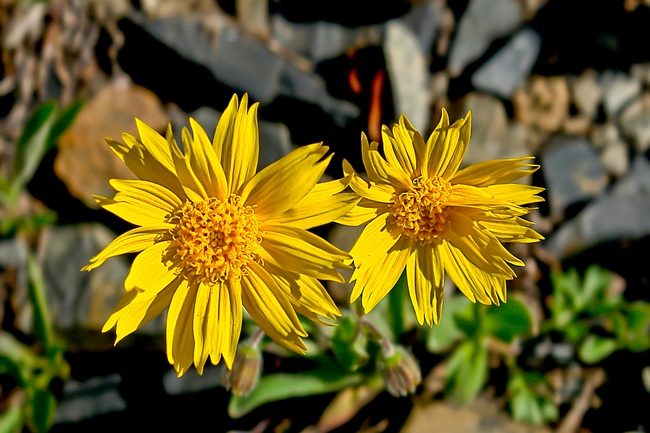
Photo credit: bigstock.com
60. Arnica
You have probably seen arnica cream in your local health food store or perhaps even the pharmacy. Arnica is terrific for helping to stop bruising, however, don’t use it on broken skin. You should also never use arnica undiluted, as it can be toxic. Used externally, arnica can even restore hair loss and promote hair growth.
61. Borage
Stimulates the adrenal glands, so consuming this herb during times of stress or periods of anxiety, this herb can help the body to cope more easily. Borage also helps with rheumatoid arthritis. Borage is also a powerful diuretic and can help to cleanse the kidneys.
62. Caraway
Caraway is most often consumed as seeds or in a tea. It regulates menstruation and helps ease painful cramps.
63. Celery
Relives hypertension with its sedative compounds. Celery is also well-known for helping the kidneys to detoxify the body. Recent studies show that it might even protect the body from certain types of cancer.
64. Chamomile Flowers
A mild sedative that often helps those with insomnia. Chamomile has strong anti-inflammatory properties and can help those with digestive problems including ulcers, colitis, and irritable bowel syndrome. Chamomile can also help relieve menstrual cramps and makes the body more receptive to other remedies.
65. Chicory
Sometimes used as an alternative to coffee, chicory dissolves gallstones and cleanses the liver.
66. Fenugreek Seeds
The seeds from this plant are quite nourishing with their high nutrient content. Fenugreek seeds are very effective against lowering blood cholesterol, inflammation, labor pin, and improving digestion problems.
67. Marsh Mallow Root
As you might have already guessed, this is the same plant from which the base is made for campfire marshmallows! The roots of this plant have so many benefits, including stopping skin inflammation, stomach ulcers, aching muscles, bruises, and the pain and itching of insect bites.
68. Geranium
Helps to open the bile ducts for the detoxification of the liver. It is also a natural anti-spasmodic, helps to stop bleeding, has anti-bacterial compounds, and is anti-infectious.
69. Echinacea
One of the most popular herbs sold in America. Sometimes referred to as coneflower, Echinacea improves white blood cell production, which means it improves the immune system. It has anti-inflammatory and anti-viral compounds that are good for righting colds and flu.
Continue to Page 8
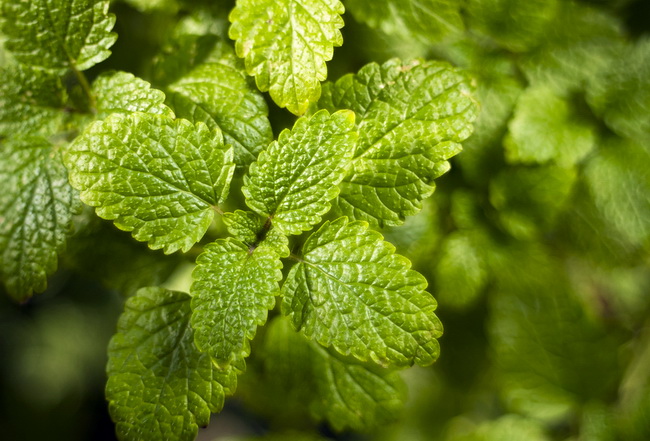
Photo credit: bigstock.com
70. Tarragon
Used almost exclusively in cooking, almost no one is aware that tarragon was originally used to help treat insomnia and depression.
71. Lime Flower
The flowers from lime trees are good at helping to stop migraine headaches, insomnia, nausea, and restlessness. These flowers also work well in combination with other herbs.
72. Lemon Balm
A super mild herb that is even safe enough for children, lemon balm is calming to the body and can relieve anxiety and panic attacks. This herb is good for digestive problems caused by stress and can calm heart palpitations.
73. Hyssop
Commonly used by asthma sufferers, this herb is super anti-inflammatory and can help stop hay fever and colds when taken at their earliest stages. Hyssop calms the nerves, which can help with nervous exhaustion, depression, grief, and guilt.
74. Hawthorn Berry
This is an excellent choice for those with heart disease and angina, when used under the supervisor of a doctor. Hawthorn regulates blood pressure and stabilizes irregular heartbeats. Never take Hawthorn Berry without a doctor’s approval.
75. Devil’s Claw
Works as an anti-inflammatory so it is useful in easing the pain of arthritis, persistent back pain, and rheumatism. This herb is also well-known for stimulating the digestive system.
Of course this list is not all inclusive, but it can help you find the herb that might best work for you. Never start an herbal program without consulting a doctor first, especially if you are pregnant, nursing, planning on becoming pregnant, or are taking prescription medications.
References:




















